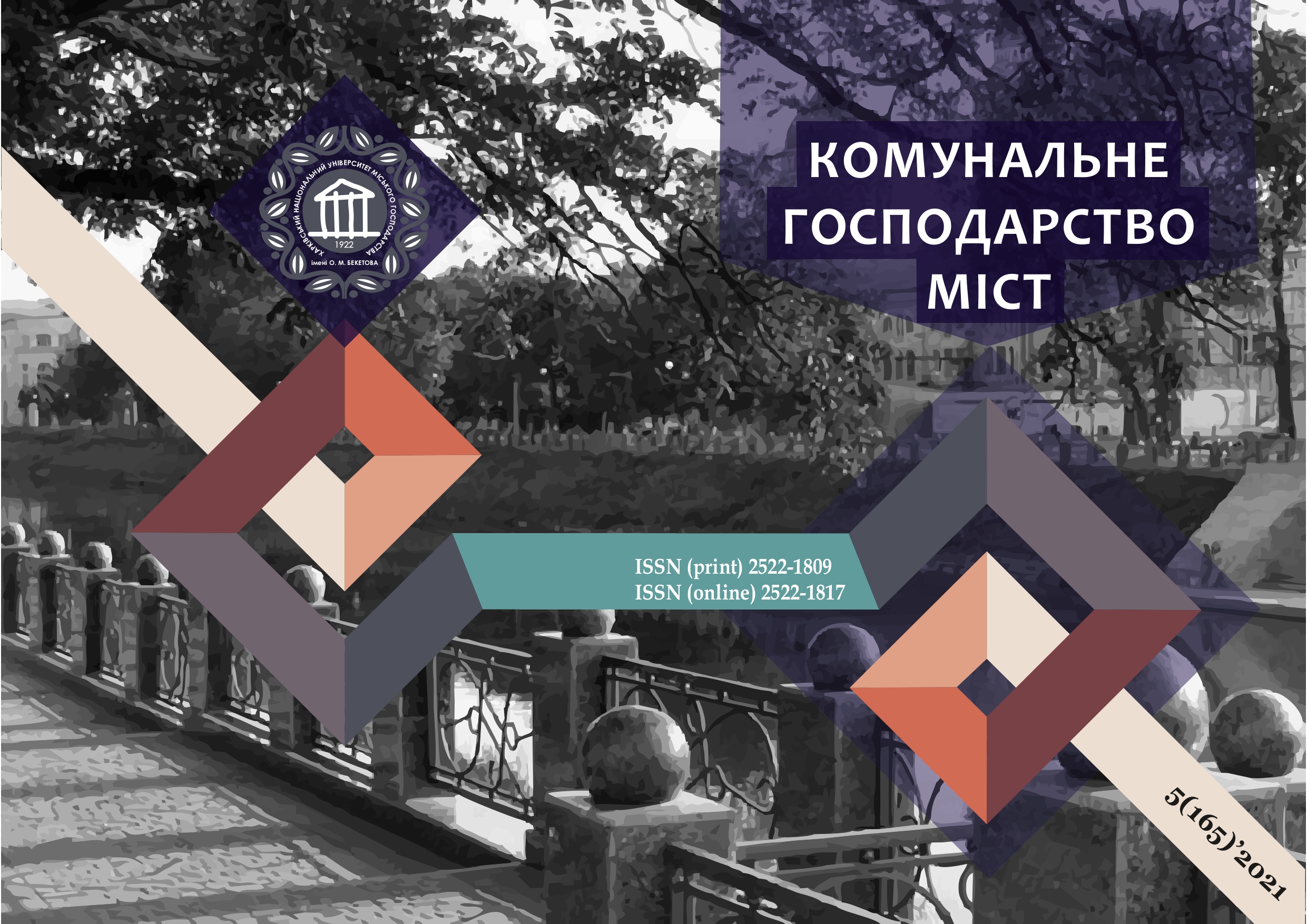BLOCKCHAIN TECHNOLOGIIES OF SMART CITY MANAGEMENT
Array
Keywords:
blockchain, smart city, innovation, digitalization, smart city.Abstract
Nowadays, the use of the concept of "smart city" opens up opportunities to solve economic, social and environmental problems, which significantly affect the conditions and quality of life of the population.
Smart technologies are used in many areas that contributes the improving of the quality of services for the daily life of citizens. However, the existing concept of a smart city is still developing and there are significant problems with its security nowadays. Blockchain technology can help to solve this problem.
Recently, the introduction of blockchain technologies in various areas has been increasingly discussed in the world.
More and more, this technology attracts the attention of Ukrainian specialists in the field of IT technologies and scientists.
The features of the introduction of blockchain technologies are based on the impossibility of bureaucratic actions by the state. Unlike the existing system of the smart city management, blockchain technology will allow city residents to communicate directly bypassing bureaucratic schemes. As it is known it is impossible to intervene in the blockchain and change or delete the record, all the actions will be seen by all the participants in the blockchain, the residents of the city.
The purpose of this article is to determine the features of the introduction of blockchain technologies in the management of a smart city in order to give state bodies new tools that will reduce the amount of fraud, the number of errors and reduce the expenditure of paper document flow; analysis of foreign experience of blockchain implementation in the city management system.
More and more cities of the world join the introduction of smart technologies. The modern trend of civilization is characterized by the rise and development of several megapolises, which merge into a huge urban structure and which in many cases represent the demographic and economic center of the national system.
A number of cities in the world are still not ready to switch to the blockchain technology completely, but their government intends to introduce innovations into the management of the city gradually.
Nowadays the blockchain technology plays a key role, as it can allow ICT to fit into an anthropologically ideal social and political context. The blockchain is the technology that can ensure full social equality, democracy, because it assumes that everyone controls everyone but not special bodies. It creates the conditions for the managemental pyramid to line up from below and above at the same time, and not just from above. Therefore, the blockchain technology provides not only the Smart City technology, beneficial to bureaucrats, but something more significant - direct coordination of actions between residents as a condition for their self-organization.
References
2. Deakin, M. & Al Waer, H. (2011) From intelligent to smart cities. Intelligent Buildings Internationalart Cities, 3 (3), 140– 152. DOI: https://doi.org/10.1080/17508975.2011.586671
3. Murgante, B. & Borriso, G. (2015) Smаrt Cities in a Smаrt Wоrld. Future City Arсhitecture fоr Oрtimal Living. Berlin, Springer Verlag, 13–35. DOI: http://dx.doi.org/10.1007/978-3-319-15030-7_2
4. The concept of "Smart City". Idea and realization. https://idoorway.mirtesen.ru/blog/43838845148/Kontseptsiya-Umnogo-goroda.-Idei-i-realizatsiya (2015). Accessed 27 June 2021 [in Russian]
5. Gunzenova, K.V. (2019) The concept of development of a "sustainable smart city". Vektor ekonomiki, 2. URL: http://www.vectoreconomy.ru/images/publications/2019/2/regionaleconomy/Gunzenova.pdf
6. Afanasyev, K.M. (2017) Blockchain technology as a tool for improving the financing mechanism of small and medium-sized businesses in Ukraine: materials intern. IX scientific-practical. conference, Kyiv 2017, 13–15 [in Ukrainian]
7. Kharitonova, A.I. (2015) Problems of the digital single market and copyright. Scientific papers of National University "Odessa Law Academy", 16, 44–50. URL: http://hdl.handle.net/11300/6522 [in Ukrainian]
8. Golubeva N.Y. (2017) Legal regulation of cryptocurrencies: is it on time? Journal of Civil Studies, 26, 22–28. – URL: http://nbuv.gov.ua/UJRN/Chac_2017_26_7 [in Ukrainian]
9. Ganechko, I.G., Afanasyev, K.M. (2016) Innovative activity in Ukraine: tendencies and problems of development. Scientific Herald of Uzhhorod University. Series: Economic science, Is. 1 (47), Vol. 1, 189–193. [in Ukrainian]
10. Kharytonov, Y.O. (2017) Information Society and IT Sphere: Ways of Streamlining. Journal of Civil Studies, 26, 6–10. URL: http://www.irbis-nbuv.gov.ua/cgi-bin/irbis_nbuv/cgiirbis_64.exe?C21COM=2&I21DBN=UJRN&P21DBN=UJRN&IMAGE_FILE_DOWNLOAD=1&Image_file_name=PDF/Chac_2017_26_4.pdf [in Ukrainian]
11. Babkin, A.V., Burkaltseva, D.D., Pshenichnikov, V.V., Tyulin, A.S. Cryptocurrency and blockchain technology in digital economy: development genesis. St. Petersburg State Polytechnical Journal. Economics, 10 (5), 9–22. DOI: https://doi.org/10.18721/JE.10501 [in Russian]
Downloads
Published
How to Cite
Issue
Section
License
The authors who publish in this collection agree with the following terms:
• The authors reserve the right to authorship of their work and give the magazine the right to first publish this work under the terms of license CC BY-NC-ND 4.0 (with the Designation of Authorship - Non-Commercial - Without Derivatives 4.0 International), which allows others to freely distribute the published work with a mandatory reference to the authors of the original work and the first publication of the work in this magazine.
• Authors have the right to make independent extra-exclusive work agreements in the form in which they were published by this magazine (for example, posting work in an electronic repository of an institution or publishing as part of a monograph), provided that the link to the first publication of the work in this journal is maintained. .
• Journal policy allows and encourages the publication of manuscripts on the Internet (for example, in institutions' repositories or on personal websites), both before the publication of this manuscript and during its editorial work, as it contributes to the emergence of productive scientific discussion and positively affects the efficiency and dynamics of the citation of the published work (see The Effect of Open Access).

